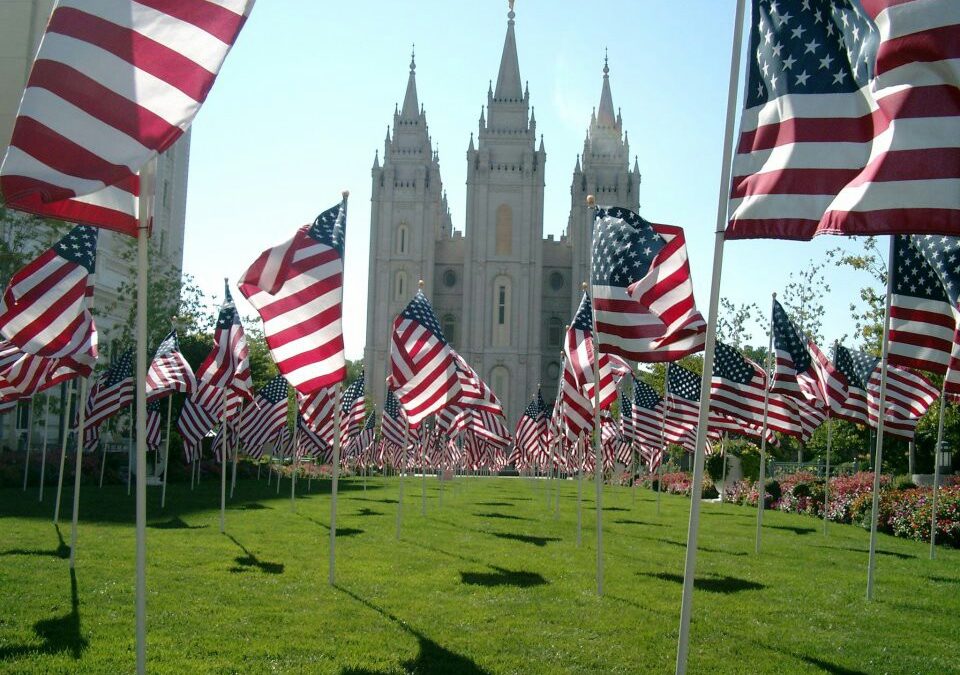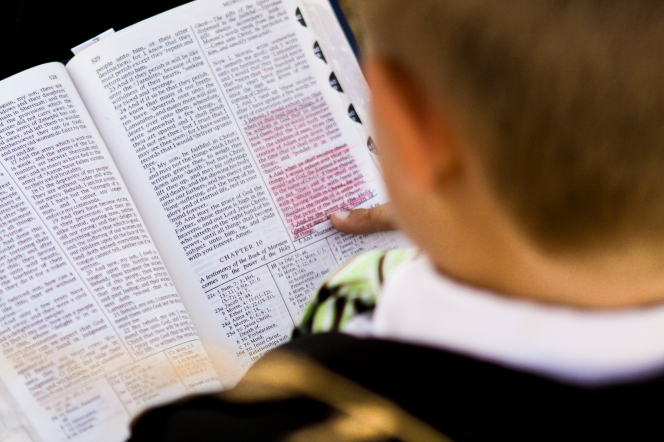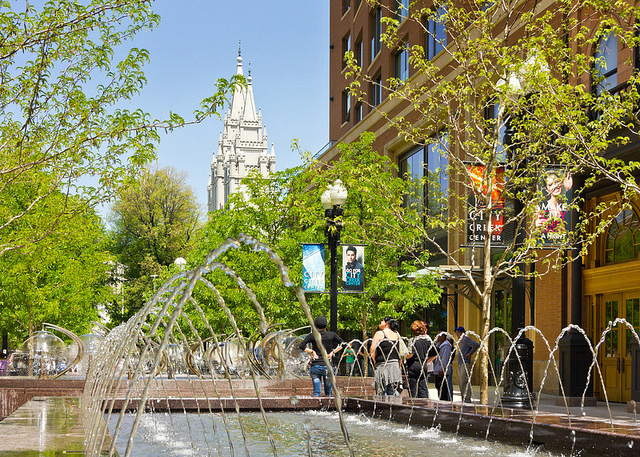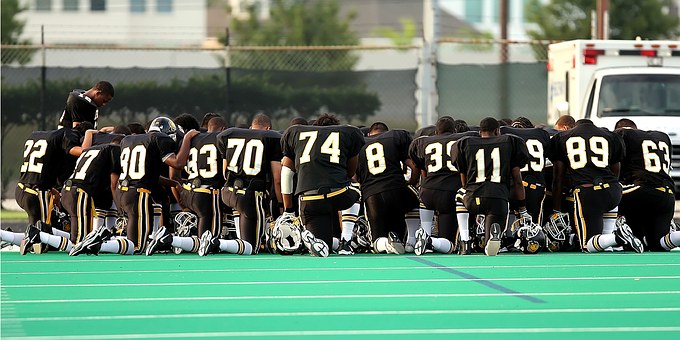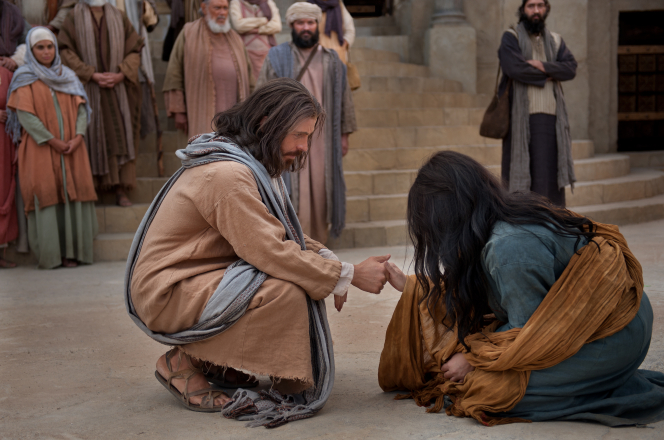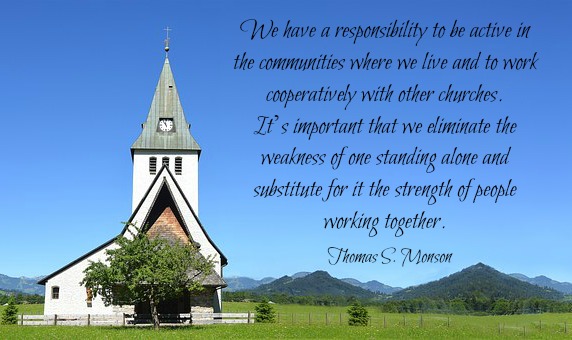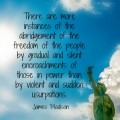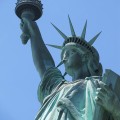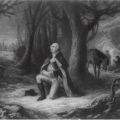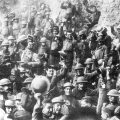Religious freedom is taking a back seat in America’s shame culture. Fueled by Twitter, Facebook, Instagram and other instant digital media, the shame culture does a great job of ostracizing, ridiculing and just plain making life miserable for those who voice opinions contrary to the so-called popular people. There are no sure footings here. New York Times columnist David Brooks wrote,
… In a shame culture you know you are good or bad by what your community says about you, by whether it honors or excludes you. …
Everybody is perpetually insecure in a moral system based on inclusion and exclusion. There are no permanent standards, just the shifting judgment of the crowd. It is a culture of oversensitivity, overreaction and frequent moral panics, during which everybody feels compelled to go along.
But there is a better way. Brooks continued,
If we’re going to avoid a constant state of anxiety, people’s identities have to be based on standards of justice and virtue that are deeper and more permanent than the shifting fancy of the crowd. In an era of omnipresent social media, it’s probably doubly important to discover and name your own personal True North, vision of an ultimate good, which is worth defending even at the cost of unpopularity and exclusion.
The freedom to find—and defend—one’s True North is called religious freedom. According to The Church of Jesus Christ of Latter-day Saints,
Freedom of religion is … a fundamental human right. Moral agency, the ability to choose right from wrong and to act for ourselves, is essential to God’s plan of salvation. Religious freedom ensures that people can exercise their agency in matters of faith.
Shaming seeks to motivate people through external means. Religious freedom seeks to motivate people from within. Only one has the power to create a strong society.
Foundation of a Free Society
Religious freedom is one of the foundational principles upon which this country was built. It’s difficult to fully appreciate the freedoms we enjoy in this nation without understanding how they came about. America’s hard-fought battle for independence from Great Britain continued after the Revolutionary War as her citizens worked to create a new form of government. Elder Dallin H. Oaks said,
The thirteen colonies and three and one-half million Americans who had won independence from the British crown a few years earlier were badly divided on many fundamental issues. Some thought the colonies should reaffiliate with the British crown. …
Unless America could adopt a central government with sufficient authority to function as a nation, the thirteen states would remain a group of insignificant, feuding little nations united by nothing more than geography and forever vulnerable to the impositions of aggressive foreign powers. No wonder the first purpose stated in the preamble of the new United States Constitution was “to form a more perfect union.”
This was a pivotal point in the young nation’s history. Elder Oaks continued,
Economically and politically, the country was alarmingly weak. The states were in a paralyzing depression. Everyone was in debt. The national treasury was empty. Inflation was rampant. …
Instead of reacting timidly because of disunity and weakness, the delegates boldly ignored the terms of their invitation to amend the Articles of Confederation and instead set out to write an entirely new constitution. They were conscious of their place in history. For millennia the world’s people had been ruled by kings or tyrants. Now a group of colonies had won independence from a king and their representatives had the unique opportunity of establishing a constitutional government Abraham Lincoln would later describe as “of the people, by the people, and for the people.”
Revolutionary Principles
The Founding Fathers applied revolutionary—and inspired— principles in creating this new government. Elder M. Russell Ballard said,
The principles and philosophies upon which the U.S. constitutional law is based are not simply the result of the best efforts of a remarkable group of brilliant men. They were inspired by God, and the rights and privileges guaranteed in the Constitution are God-given, not man-derived. The freedom and independence afforded by the Constitution and Bill of Rights are divine rights—sacred, essential, and inalienable. In the 98th section of the Doctrine and Covenants, the Lord indicates that the “law of the land which is constitutional, supporting that principle of freedom in maintaining rights and privileges, belongs to all mankind, and is justifiable before me (Doctrine & Covenants 98:5).”
These revolutionary principles only work when implemented by a God-fearing people. Religion is essential for them to succeed. Elder Ballard continued,
Believe it or not, at one time the very notion of government had less to do with politics than with virtue. According to James Madison, often referred to as the father of the Constitution: “We have staked the whole future of American civilization not upon the power of the government—far from it. We have staked the future of all of our political institutions upon the capacity of each and all of us to govern ourselves according to the Ten Commandments of God (Russ Walton, Biblical Principles of Importance to Godly Christians, New Hampshire: Plymouth Foundation, 1984, p. 361).”
George Washington agreed with his colleague James Madison. Said Washington: “Reason and experience both forbid us to expect that national morality can prevail in exclusion of religious principle (James D. Richardson, A Compilation of the Messages and Papers of the President, 1789–1897, U.S. Congress, 1899, vol. 1, p. 220).”
Religion’s Role in Society
Why is religion so important? What role does it play in our government and in our society? Elder Ballard taught,
Madison, Washington, and Lincoln all understood that democracy cannot possibly flourish in a moral vacuum and that organized religion plays an important role in preserving and maintaining public morality. Indeed, John Adams, another of America’s Founding Fathers, insisted: “We have no government armed with power capable of contending with human passions unbridled by morality and religion (John Adams, The Works of John Adams, Second President of the United States, Charles F. Adams, 1854).”
Religious beliefs shape our actions—in everything. Elder Oaks said,
Religious beliefs and practices are … criticized as irrational and contrary to important government and social goals. I … maintain that religion is uniquely valuable to society. As one atheist admitted in a recent book, “One does not have to be a religious believer to grasp that the core values of Western civilization are grounded in religion, and to be concerned that the erosion of religious observance therefore undermines those values.” One of those “core values” is the concept of inherent human dignity and worth. …
Western societies are not held together primarily by the overall enforcement of laws, which would be impractical, but most important by citizens who voluntarily obey the unenforceable because of their internal norms of correct behavior. For many, it is religious belief in right and wrong and an anticipated accountability to a higher power that produces such voluntary self-regulation. In fact, religious values and political realities are so interlinked in the origin and perpetuation of Western nations that we cannot lose the influence of religion in our public life without seriously jeopardizing all our freedoms.
So how do we protect these freedoms?
Standing Together
Voltaire is often attributed as the origin of the statement, “I may not like what you say, but I will defend to the death your right to say it.” Our shame culture is more concerned with protecting our fragile egos and sense of self than in listening to what someone else has to say. What started as an atmosphere of political correctness has escalated into an all-out war of words in which no one dares to be on the wrong side. This is definitely not what the Founding Fathers had in mind when they organized our government.
Religion is being crowded out of the public square. But those who believe in God must do their part to stand firm for their beliefs. Elder Quentin L. Cook said,
This is a time when those who feel accountable to God for their conduct feel under siege by a secular world. You understand the moral principles that are under attack and the need to defend morality. Religious freedom all over the world is also under attack. It is important for us to become well educated on this issue and assume responsibility for ensuring that the religious freedom we have inherited is passed on to future generations. We must work together to both protect religious freedom and restore morality. …
Our joint effort should be to protect important civic values like honesty, morality, self-restraint, respect for law, and basic human rights. … If we fail to diligently protect religious freedom, we risk diminishing other important freedoms that are important both to society and to us. …
One of the reasons the attack on moral and religious principles has been so successful is the reluctance of people of faith to express their views.
Thus, people of faith must stand together in defense of their religious liberty.
Civil Discourse
But in the world today, there is more and more discord in the public square. And some discussions are turning downright nasty. This cannot happen if we are to have the kind of government in which all views are discussed. Elder Cook counseled,
We need to be civil in our discourse and respectful in our interactions. We live in a world where there is much turmoil. Many people are both angry and afraid. The Savior taught us to love even our enemies (see Matthew 5:44). This is especially true when we disagree. The moral basis of civility is the Golden Rule. It is taught in most religions and particularly by the Savior. “And as ye would that men should do to you, do ye also to them likewise” (Luke 6:31). Our faith requires that we treat our neighbors with respect.
Indeed, how we disagree shows much about who we are. Elder Cook said,
… How we disagree is a real measure of who we are and whether we truly follow the Savior. It is appropriate to disagree, but it is not appropriate to be disagreeable. Violence and vandalism are not the answer to our disagreements. If we show love and respect even in adverse circumstances, we become more like Christ.
Forgiving Ourselves and Others
The shame culture relies on forgetting, rather than forgiving, the wrong. Those who bear the brunt of the shaming attacks must wait until the next big scandal comes along for his or her wrongs to fade into the background. Unfortunately, our digital memory is very long, and the fires can smolder in cyberspace long after the initial blaze has died down. There is a real danger in this. Rabbi Jonathan Sacks explained,
Shame has a place in any moral system, but when it dominates all else, when all we have is trial by public exposure, then the more reluctant people will be to be honest, and the more suspicious we’ll become of people in public life, not just in medicine but in politics, the media, financial institutions, corporations, and let’s be honest, in religious organisations too.
We need to make it easier for people to be honest and apologise, which means that we too must learn how to forgive.
We each have a duty to behave responsibly— in cyberspace as well as in our lives. But we are all human, and will, at some point or another, fall short. We have to be willing to forgive the online trespasses of others if we also wish to be forgiven. This is important if we are to have civil discourse on the information superhighway.
A Matter of Choice
At the end of the day, we each have a God-given right to choose—what we believe, how we worship, etc. Freedom of choice, freedom of thought, freedom of expression are all inalienable rights that our Founding Fathers sought to protect. When we vilify the thoughts and beliefs of others, we are hindering the free flow of thoughts and ideas that makes our country great.
The shame culture is based on fear. Fear of what someone else thinks. Fear of doing something wrong and being caught. But faith, not fear, created our nation. And faith, not fear, will sustain our nation. Not just faith in God, but also faith in people. The shame culture ultimately assumes that people won’t do the right thing unless they are ridiculed or coerced. But America was built upon the premise that people can do what’s right because they have an internal motivation to do so.
Our Founding Fathers were visionary men. They created a system of government that was strong enough to withstand time yet flexible enough to meet the demands of a changing world. Their secret? Having a God-fearing people who respected themselves and each other enough to stand up for what was right.

